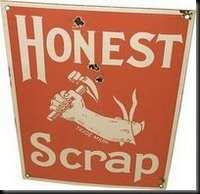This article from scotsman.com caught my attention today. The article has stuck in my craw all day so I need to get this off my mind.
I guess what got my strict attention were the following paragraphs lifted from the article. The first quote is in reference to the discussions on lgbt issues at Lambeth in 1998:
The then Bishop of Edinburgh [Bishop Richard Holloway] said he had been amazed by the "intensity and brutality" of the event. It had felt like "being in the middle of a lynching". [inclusion mine]
Bishop Holloway also takes an optimistic line, but does not think there has been a change for the better in the attitude of hard-liners since 1998. He calls the last Lambeth Conference "a hatefest".Indeed, Bishop, indeed.
"I still have enormous contempt, not so much for their point of view as the way they have expressed it, in ugly, violent language."
He was particularly appalled by the comments of Peter Akinola, Archbishop of Abuja in Nigeria, and a leading figure on conservative wing.
"He doesn't say just he disagrees with gay people, he insults them and likens them to animals. You can disagree with people and still have a respect for each other.
In a typically graceful statement pre-Lambeth, TEC's Presiding Bishop, Katherine Jefferts Schori, is reported by the
BBC to have said that those in the Anglican Communion (such as Akinola and Orombi) would be missed and that 'the meeting would be "diminished" by their absence.'
Two very different takes, these.
Akinola is a purist. He stands on a wee rock he has carved for himself and a few others and won't budge. I understand that thinking. Early in my activist life, I practiced it. But I quickly came to realize that change requires involvement.
So, on the one hand, Akinola has likely hurt himself. On the other hand, he has given breathing room for perhaps less hateful voices to speak to his issues at Lambeth (while preserving his odd spiritual bubble).
Given things have just intensified since Bishop Holloway's Lambeth experience, I conclude that surely this kind of crude and ugly approach will not be missed except by the press. I know I wouldn't miss it.
Perhaps the voices of disagreement at this Lambeth can be more calm and understanding, in their words, hearts, prayers and actions.
Sometimes separation is good. Whether in the midst of family disagreement or our Communion's disagreement, it necessarily allows for personal reflection on the matter at hand. Being a mere mortal, I know personal reflection can go wrong when this bolsters one's wrongs to justify the wrong path. On the other hand, one can conclude that some actions taken were, well, just screwed up beyond belief. Self honesty is important in any pursuit.
One of the issues Schori brought up in this interview is very important:
"We've had to talk about issues of human sexuality publicly. That's culturally seen as inappropriate in many other parts of the Communion," she said.Yes, cultural realities are alive. They are different, even one community to the next, one county to the next, one state to the next and one country to the next. Not to mention the variety in each category.
"We have embarrassed other parts of the Communion because we need to talk about these issues publicly. That's the biggest challenge - to figure out how to live together as a family of churches."
But, in my view, NEVER should there be language to debase another or a call for physical violence or incarceration of another because of divergent views within Christianity. And most certainly, never should this occur in the Anglican Communion. Imbuing love for God and respect of God on a platform of verbal violence makes no sense. "I hate what you are because I love God. You should go to jail." I could never utter those words. I cannot imagine what could drive me to such a point of hysterical religious disparity.
One can set me right on this, but I recall no such thing in the Gospels. To the contrary, Jesus just seemed to baffle one after another as he tended, in various ways, to those excluded and those in power often hated, though he clearly didn't like the concept of "pay to pray".
Bottom line: I am glad Akinola and his ilk are not there. They have representation, but not nearly such abusive representation as they would personally deliver.
Maybe some work and understanding might actually occur in this Lambeth environment.










|